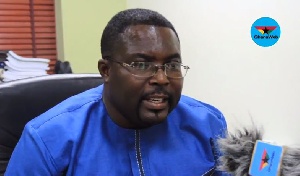Many teachers currently at the Ghana Education Service (GES), are to be redeployed to fill vacancies in the classrooms under the decentralization system to be enforced next year.
Mrs Docia Abban, New Juaben Municipal Director of Education, said this at the Catholic Educational Unit Regional Dialogue and Consultation meeting, on Government and Church Partnership in Education in Koforidua on Friday.
She said the decision was aimed at improving upon teaching and learning in the schools.
The dialogue was on the theme “Church and Government Partnership towards enhancing Education Service delivery and Governance”.
Mrs Abban, expressed worry about the present situation where Regional Managers of Education post teachers to schools without consulting the Metropolitan, Municipal or District Directors of Education to see where there are vacancies to be filled.
She said the situation had led to over-staffing in some schools, especially the Unit Schools at the expense of the Local Authority Schools.
Mrs Abban said many children who performed poorly at the Basic Education Certificate Examination (BECE) were from the local authority schools adding that, the GES was determined to remedy the situation.
Mr Clemence Y. Baba, Acting Eastern Regional Manager of Catholic Schools, also expressed unhappiness about the situation whereby important education decisions are taken without due regard to the religious bodies.
“Very vital capacity building workshops and seminars are undertaken for implementers of educational policies leaving out Regional Managers who represent one of the major stakeholders”.
He said financial assistance used for running the unit offices was very meager, making it difficult for Regional Managers to operate effectively.
Mr Baba said the recent attempt to do away with the unit offices as well as the scrapping of the teaching of Religious and Moral Education from the curriculum of basic schools, and the introduction of the capitation grant and the Computerized School Selection Placement System (CSSPS) were some typical examples of major decisions taken without consulting the religious bodies.
He said the partnership between the religious bodies and the government would have to be reviewed under the current decentralization policy, if the partnership was to achieve its desired results of quality education.
Most Reverend Joseph Afrifah-Agyekum, Bishop of the Koforidua Diocese of the Catholic Church, in a speech read on his behalf also noted with concern that, religious bodies’ partnership with the state in the education sector was not being respected by some actors in the education enterprise.
He said “some implementers decide to flout its provisions or, worse still, totally disregard the very existence of the agreement itself” saying such attitudes and conducts had led to an atmosphere of strife, mistrust and in some instances, open conflicts.**
Regional News of Friday, 27 April 2012
Source: GNA
















